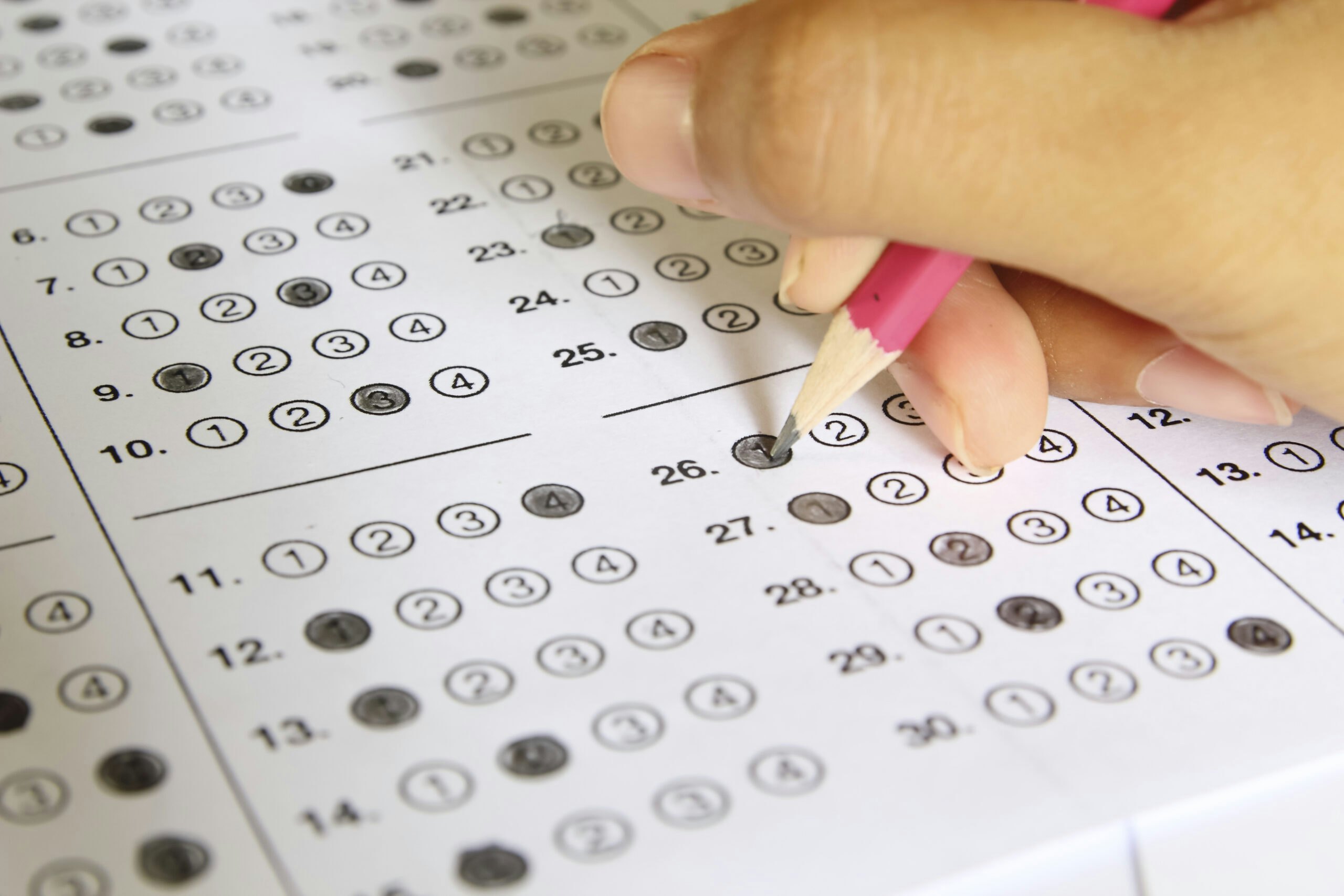Welcome back to the education newsletter from the George W. Bush Institute.
At a moment when students across the nation are struggling, too many of the adults entrusted with their education appear to be retreating from the promise of high expectations. This month’s newsletter explores why rigorous academic standards and transparency about student learning are essential pillars of a strong public education system. Without them, America’s children will be ill-equipped to thrive – whether in the classroom, the workplace, or as engaged citizens in their communities.
If you’re new to the Bush Institute, welcome. We’re a nonpartisan organization dedicated to promoting freedom, opportunity, accountability, and compassion. If this newsletter was forwarded to you, and you’d like to receive future editions directly, please let us know – we’d be glad to add you to our list.
Thank you for reading.
Monthly snapshot
“The declines in student performance since 2013 are real, and distressing. But they came on the heels of two decades of remarkable progress.”
— Michael J. Petrilli, Director, president of the Thomas B. Fordham Institute, a visiting fellow at Stanford University’s Hoover Institution and an executive editor of Education Next
In an op-ed for The 74, Mike Petrilli reflects on our nation’s decline in student achievement, which started well before the COVID-19 pandemic, and continues today. He points out that from the mid-1990s to early 2010s, American students achieved some of the most significant gains in both performance and educational attainment in modern history, proving that large-scale progress is possible. He urges policymakers to remember what worked, learn from it, and strive to reignite that same momentum for the next generation of students.
State spotlight: Mississippi, Alabama, Louisiana & Tennessee – the power of high standards and science-based instruction
In a recent piece for The Atlantic, Idrees Kahloon writes that low expectations are destroying American education. He highlights Mississippi’s work to raise expectations by requiring third graders pass a literacy exam before advancing to fourth, as well as the state’s strategic investments in science-based literacy instruction. Today, Mississippi leads the nation in demographically adjusted National Assessment of Educational Progress (NAEP) scores for fourth-grade reading and math, outperforming wealthier states like Massachusetts despite spending roughly half as much per pupil.
The strong reading gains seen in Alabama, Louisiana, and Tennessee – driven by policies similar to those in Mississippi – demonstrate that the only cure for our country’s literacy crisis is a return to high expectations and accountability. As President George W. Bush warned, we must challenge “the soft bigotry of low expectations.” America cannot afford another lost decade in education.
Science of reading
In Fordham’s 2025 Wonkathon, former U.S. Deputy Undersecretary of Education Peter R. Greer argues that sustaining the science of reading revolution will require smarter, more consistent accountability measures at every level of the education system. His vision includes the following:
- At the school level: Teachers should conduct frequent, short-term assessments to identify and address reading gaps before students fall behind. All staff – including substitutes and administrators – should be trained in the science of reading to ensure consistent instructional quality.
- At the district level: Schools should partner with local universities and families to extend literacy learning beyond the classroom. Greer points to a successful collaboration between Boston University and Chelsea Public Schools, in which grandparents were trained to support reading at home.
- At the state level: Policymakers should publish regular “reading report cards” to monitor student progress and track teacher training in reading across districts.
Greer concludes that only by maintaining the cornerstones of accountability – continuous measurement, consistent training, and transparent reporting – can the reading revolution endure and fulfill its promise.
Measurement matters
- A recent report from the Center for American Progress highlights how several states have effectively lowered the bar for student reading proficiency. Drawing on research from FutureEd, the report found that in 2024, 75% of states had a gap of 15 percentage points or more between their state reading assessment proficiency rates and their proficiency rates on the National Assessment of Educational Progress (NAEP) for both fourth and eighth grades. In other words, students appear to perform better on state assessments than on the NAEP, suggesting a disconnect between the two measures. This misalignment often occurs when states either weaken their reading standards or lower the score required to be deemed proficient on state tests. Notably, some states that have celebrated major gains in reading proficiency – such as New York, Oklahoma, and Alaska – have actually reduced their proficiency thresholds without changing their academic standards. As a result, the apparent improvement in scores likely reflects lower expectations for students rather than genuine gains in achievement.
- State-issued school report cards are misleading parents by labeling underperforming schools as successful, argues AEI’s Daniel Buck in Education Gadfly. In Milwaukee, for instance, Jackson Elementary received a rating of “Meets Expectations” despite the fact that only 5.7% of its students are proficient in reading and just 4.3% meet grade-level standards in math. Buck calls for genuine accountability and transparent data dashboards to replace these misleading, feel-good labels. “To improve schools, we need clear communication and honest data,” he wrote.
- In a recent post for the Fordham Institute, Dale Chu reflects on the future of American education amid declining student performance and rapid technological advancement. He emphasizes the vital role parents must play in making education a national priority. Yet, despite widespread declines in student achievement, surveys show that most parents continue to rate their child’s school positively – even when objective data indicate serious shortcomings. Strikingly, 90% of parents believe their child is performing at grade level, even though accurate assessments suggest that only about one-third actually are. This gap between perception and reality fosters a sense of complacency: When parents believe schools are doing well, there is little urgency to push for systemic change.
Bush Institute Insights
- Following the passing of former Vice President Dick Cheney, Nina Rees, his onetime domestic policy advisor and current senior fellow at the Bush Institute, reflects on her experience working in the Office of the Vice President during the first two years of the Bush-Cheney administration. In a piece for the Fordham Institute, Rees recalls Cheney’s deep engagement with the development of No Child Left Behind and the crucial role he played in using his credibility – both with conservative coalitions and as president of the Senate – to help advance a bold new approach to education reform.
- “Young people today, and especially young men, do not understand how reading books can alter the trajectory of a life. Reading for pleasure among American adults has dropped 40% in the past 20 years,” said Shilo Brooks, president and CEO of the George W. Bush Presidential Center, who is on a mission to change that with a new podcast from the Free Press called Old School. In it, he interviews men about the books that shaped their lives. The latest episode features Fareed Zakaria discussing what The Great Gatsby taught him about America.


























